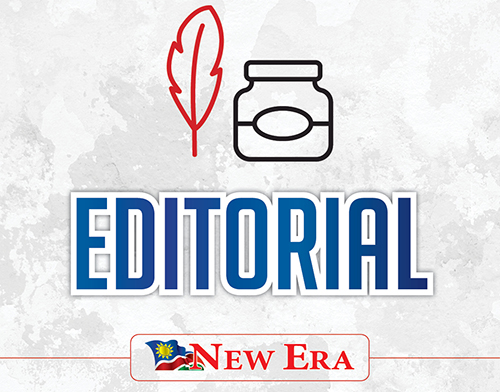Prime Minister (PM) Saara Kuugongelwa-Amadhila has
warned officials to not politicise hunger, and ensure that drought relief food gets to those who need it most.
The PM was speaking at the opening of the two-day National Platform on the Implementation of the 2024/2025 Drought Relief Programme.
Trying to score cheap political points or make political opponents suffer while the people who voted for you to work on their behalf are hungry is not only ethically wrong ,but also irresponsible.
Providing relief has been hamstrung by civil servants corruptly selling relief food meant for vulnerable,communities.
These officials have also been accused of stealing drought relief food.
The PM stated that the slow pace of
farmers accessing the livestock support programme is because they do not submit claims as desired.
The slow processing of payments for farmers who have already claimed is another problem.
Politicising hunger undermines government’s efforts to alleviate suffering of vulnerable Namibians, and is a
dangerous precedent that could have dire consequences.
Hunger and food insecurity are not foreign abstract concepts, but a stark reality that face many Namibians daily.
As the country still imports around 80% of its food, it is time government and all stakeholders in the food production chain properly engage to improve and widen local food production.
The latest Integrated Food Security Phase Classification report estimates that 1.15 million people in Namibia, which is about 38%, face high levels of acute food insecurity.
They require urgent action to reduce food gaps and protect livelihoods.
In May this year, President Nangolo Mbumba declared a State of Emergency on drought, following the worst dry spell Namibia has experienced in the last 100
years. The President’s decision was informed by a government-initiated drought assessment, which established that about 331 000 households needed to be registered countrywide to receive drought food aid.
A Cabinet decision, which is in line with Mbumba’s declaration, has made provision for a budget of N$600 million to distribute food to drought-stricken communities until 30 June 2025, and N$100 million for livestock and water supply, as well as N$25 million for seed and other agronomic
and horticultural needs until 31 March
2025.
For the government to fully address the drought situation, especially the fair and timely distribution of food and the effective rollout of the livestock support programme, a war chest of around N$1.3 billion will be needed.
Hopefully, the provision of a basic income grant for more people, especially the working poor and urban dwellers, would now be seen as a necessity and not a luxury or something that will turn people lazy.
While the government has acted relatively swiftly in providing solutions for farmers
and households in need, those on the
ground have not come to the party to improve access. In regions like Kunene, where 10% of the population faces critical food insecurity, people cannot afford delays and inefficiencies in relief distribution.
The failure to address hunger now will have a ripple-effect, resulting in worsening poverty, unemployment and malnutrition, all of which take years to reverse.
Hunger and food insecurity should never be used as a political tool.
Those in positions of responsibility are to ensure that relief efforts are fast, fair and transparent. They should serve the needs of the people.
The PM’s warning is not just a call for better governance, but a reminder that inaction, inefficiency and corruption in the face of hunger are unacceptable.
The lives of Namibians depend on everyone coming together to provide relief to those in dire need.



